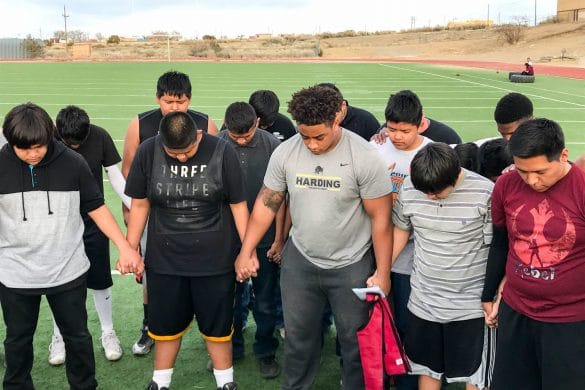If you ever find yourself in the mood to brew instant controversy, just try to create a story “inspired” by a biblical text. “Noah,” directed by Darren Aronofsky, features Russell Crowe as the faithful servant of “the Creator,” tasked with preserving creation that is being destroyed by fallen humanity—descendants of the murderous Cain.
It is clear that “Noah” utilizes the basic storyline found in Genesis but is meant to build on the themes of the text rather than act as an exact retelling of the biblical account. This fact has spurred a mixture of emotions from Christian audiences; the most vocal are disturbed by the film’s lack of accuracy. After watching this film, I believe it is not so much the fact that “Noah” is not accurate enough, but that it is too accurate a retelling. This film forces our Christian community to wrestle with the question as to how the God we know as merciful and all-loving could destroy all of humanity.
The most painful scene finds Noah in the ark while the sound of a thousand screaming voices drowns out the fall of rain. Noah’s daughter, played by Emma Watson, pleads with him to let just a few find refuge in the ark. Noah is silent. I felt my heart tighten as I watched this disturbing scene unfold. It pained me to look on and witness this cleansing of the earth that brought death to so many. The film makes it clear that it is the choices of mankind that brought death into the world, and that their creator is not responsible for those decisions. At one point, Noah visits the nearby human settlement that is threatening his family and finds a gruesome scene in which violence covers the ground in blood, and their need to survive drives them to sacrifice their own children. Still, we have to ask the question: where is justice and mercy in this act of sending a destructive flood? The film wrestles with these questions through the eyes of Noah. The violence and corruption that he witnesses cause him to conclude that his own family is worthy of destruction also. He sees that, despite their virtuous qualities as compared to the other citizens of the earth, evil may potentially govern their actions. Noah decides that the purpose of his family’s survival is to protect the creatures of the earth, and that they are not meant to carry on the human race. Without giving away too many spoilers, Noah was given a choice to either give humanity a second chance or ensure its destruction. Noah’s inner conflict creates a beautiful opportunity to see this biblical account through the eyes of God. Does Noah choose to spare humanity out of love? Does Noah choose to act in the image of God, who sustained his creation even when he knew they would again become corrupt, even when it would mean offering up his only son, Jesus Christ, to again cleanse the human heart?
I pray that we all take this film as an opportunity rather than a cry to take up arms against those we are trying to reach with love. “Noah” challenges us to wrestle with this difficult text, and it opens dialogue about the nature of our creator.





